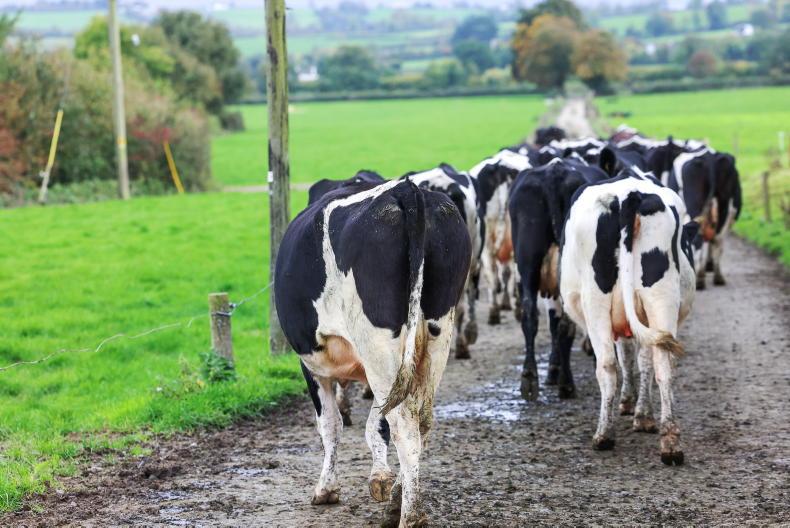After months of speculation, it was confirmed on Friday morning that Ulster Bank will exit the Irish market.
It’s important to note that the decision will only impact Ulster Bank’s 1.1m customers in the Republic of Ireland.
The bank’s operations in Northern Ireland will continue as normal.
According to an analysis carried out by the IFA, Ulster Bank has around 20,000 farming customers in Ireland that will be impacted by the decision.
Roughly 10,000 farmers have loans with Ulster Bank, while a further 10,000 avail of current account facilities.
Below, I have outlined my advice to farmer customers of Ulster Bank on a number of important questions they will be asking themselves now that Ulster Bank’s exit is confirmed.
What will happen to Ulster Bank customers?
Now that Ulster Bank has confirmed it will exit the Irish market, a winding down of the bank will take place gradually, most likely over a number of years.
This will involve a number of loan portfolio sales, either to other banks or non-bank lenders.
It’s still early days, but AIB has confirmed it is already in talks with Ulster Bank to acquire €4bn worth of Ulster Bank’s corporate and commercial loans.
Additionally, Permanent TSB has confirmed it is examining a potential acquisition of some of Ulster Bank’s retail and SME business loans.
Ulster Bank customers will need to make alternative arrangements for day-to-day banking requirements.
The bank's deposits of €20bn will need to be rehoused with other financial services.
What will happen if I hold an Ulster Bank current account with an overdraft?
You will simply be given notice to make alternative arrangements by a certain date.
According to the Consumer Protection Code, Ulster Bank must give at least two months’ notice to customers to allow them make alternative banking arrangements.
There are many other providers of current accounts in Ireland and the process has become much simpler since the Central Bank code of conduct for switching came into being.
If you hold an overdraft, you will need to repay any monies owed to Ulster Bank before closing the account.
You will need to ensure your new bank is willing to provide the same overdraft facility to you in advance of this.
What will happen to my savings account?
As cash deposits exceed loans at all the main banks currently, interest rates for deposits are at an all-time low.
Your deposit account will be closed and you will likely be given a bank draft for your balance to lodge with your new provider, or invest elsewhere.
What about my credit card?
Your credit card is likely to be sold to a new provider. If this happens, you will be informed by Ulster Bank.
You will also need to become familiar with the terms and conditions of the new provider, such as interest rate or the minimum repayment amount.
What will happen to Ulster Bank customers with a loan or mortgage with the bank?
Ulster Bank customers with loans or mortgages will likely see their loans sold on to a new lender.
This will have little effect on you, as the terms and conditions of your loan will stay the same, such as interest rate and repayment terms.
This is an important point for mortgage holders with a tracker mortgage, as the tracker rate on your mortgage cannot be changed or altered when the mortgage is transferred to another bank.
Alternatively, Ulster Bank could decide to hold on to its loans and mortgage portfolio and outsource the servicing of them to a specialist company to provide day-to-day management.
Ulster Bank could also decide to sell on these loan book(s) to a so-called vulture fund, which invests in debt considered weak or in arrears.
In either case, your rights and obligations will remain the same and you will be protected under the Central Bank’s consumer protection code.
What should I do if my loan is in arrears and sold to a vulture fund?
Loans sold to vulture funds can be packaged as performing loans or non-performing loans.
If you are in financial difficulty and aware your loan or mortgage is in arrears, it is important you seek professional advice to ensure you can engage with these vulture funds.
Professional advice from a personal insolvency practitioner (PIP) with your accountant, adviser and solicitor will ensure you are fully aware of the best course of action and the various debt solutions available to you.
It is imperative you get your advice early, as vulture funds tend to have short-term strategies with regard to repayment of loans.
What will happen to Ulster Bank’s 2,800 staff?
The Financial Services Union (FSU), a trade union representing staff in the financial sector, has recently met with the Minister of State for Financial Services Sean Fleming to look for support for Ulster Bank’s 2,800 staff across the country.
Today’s announcement is very bad news for Ulster Bank staff, although some may be able to transfer to other banks or financial institutions in the event of some asset sales.
For instance, anywhere between 200 and 300 Ulster Bank staff may transfer to AIB if the sale of €4bn in corporate and commercial loans goes ahead.










SHARING OPTIONS